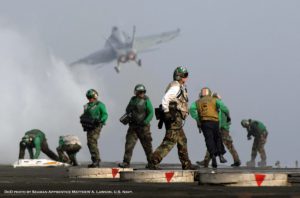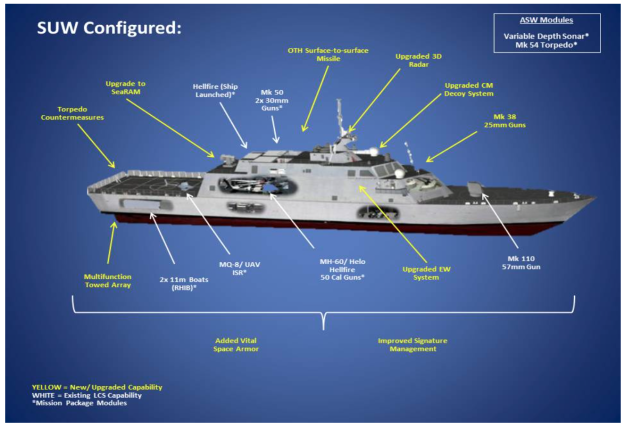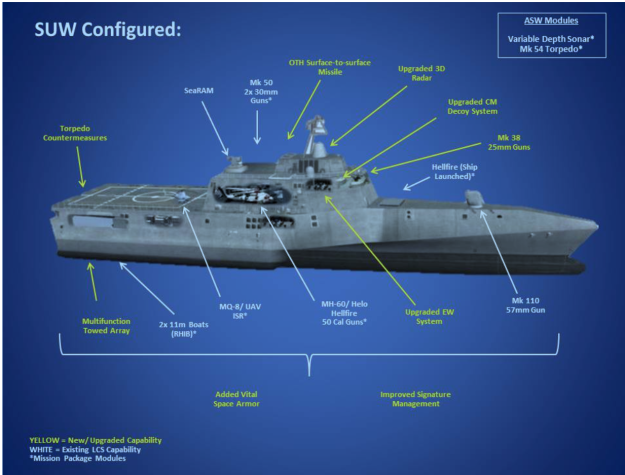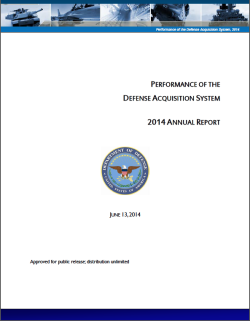Today’s missive is about the failure of success. This phrase is a take on the one coined in a paper I often reference by Dean Ludwig and Clinton Longenecker entitled The Bathsheba Syndrome: The Ethical Failure of Successful Leaders. This came to mind once again as I was reading the morning paper and discovered an article on yet another Naval Officer pleading guilty to bribery and conspiracy charges in conjunction with the Fat Leonard debacle. Here’s another sad failure of a successful individual. Perhaps this commander was an otherwise decent guy. But how does a decent guy, a successful Naval officer, wind up in the throes of bribery and prostitution? Before I sound too self-righteous, I should point out that there is a dark side to each of us. I just finished reading a great book by Christian Miller entitled The Character Gap: How Good Are We? The theme of this book was that we all are some mixture of good and bad. Most people wind up between the extremes. Surprisingly, we tend to think we are not a bad as we might actually be, and we almost always overlook our flaws. This problem of human nature gets magnified when we become successful, making it all the more important to constantly evaluate our behavior. The book ends with some strategies to keep one on a virtuous path. There is one interesting strategy worth mentioning here, “nudging toward virtue.” The basic premise is that there are little “nudges” you can make which tend to move one towards a more virtuous life. The analogy used is called “Fly in the Urinal”. There’s an airport in Europe that was having real trouble with maintaining cleanliness in the men’s room. Signs urging guys to pay more attention to doing their business apparently didn’t have much effect. By engraving the image of a house fly in the bottom of the urinals, spillage decreased 80%. The signs were a hammer, the fly was a nudge, but many times more effective than the hammer. (I’m reminded of the sign in the men’s room at Penn Station in New York: ONLY ONE PERSON PER URINAL) Nudges can be little things, giving blood, giving a homeless person a buck at a stoplight, a quick thank you to the janitor, etc. While nudges won’t necessarily turn things around, they are a reminder that each one of us could do better.
By engraving the image of a house fly in the bottom of the urinals, spillage decreased 80%. The signs were a hammer, the fly was a nudge, but many times more effective than the hammer. (I’m reminded of the sign in the men’s room at Penn Station in New York: ONLY ONE PERSON PER URINAL) Nudges can be little things, giving blood, giving a homeless person a buck at a stoplight, a quick thank you to the janitor, etc. While nudges won’t necessarily turn things around, they are a reminder that each one of us could do better.
Back to failures of success. Examples are everywhere. I always introduce myself as a ‘twice-failed” retiree.” I just can’t seem to get this retirement thing right. Many small businesses fail because they are wildly successful as an 8(a), but fail to make the transition to big business. Football teams can be highly successful for 58 minutes of a game, only to revert to a “prevent defense” for the last two minutes. They stop doing the things that made them successful for most of the game and the opposing team takes advantage of this lapse. Senior leaders destroy brilliant careers by outrageous behavior. They, too, abandon what made them successful all their career.

It seems to me that the worlds of success and failure are very much alike:
- Success or failure does not always relate to level of effort. Luck plays a role. Other people play a role. Events beyond your control play role. This is why it is so important to reflect on the results of your labors. Was I just lucky this time?
- Success or failure tend to have unintended consequences on those around you. They may be impacted, even though they may have had nothing to do with your behavior or actions.
- A single event can make you a success or a failure, but a single event rarely turns the tables. If you are successful, analyze why and keep doing that. If you have failed, realized that there’s probably a long road ahead to turn things around. (Note to self: Insert Luigi the Bridge Builder Joke here)
- Success and failure can be unfair. As they say, “A rising tide floats all boats”, but just as easily, one bad apple can ……yadda, yadda, yadda.
- Success and failure can happen randomly. Most leaders say one makes one’s own luck by setting the favorable conditions. Throughout my life, I’ve been lucky enough to have the successful surprises outnumber the opposite.
- Both always bring the judgement of others on you, good and bad. Some are envious. Some are resentful. Some feel vindicated. Some are happy/sad for you. Regardless, you will be judged.
So how does a successful person avoid the “failure of success”, succumbing to the Bathsheba Effect? How does one stay on the success side of the fine line?(This is a good place to point out that I firmly believe that the more successful you are, the more susceptible you become to the failure of success.) Besides the aforementioned Nudge to Virtue, Here are a few of tips I found useful:
- Set the Standard. Make sure all who work for you know YOUR standard. A particularly useful way to do this is to send out a memo on what your expectations are and how you expect business to be conducted. Include topics like who pays for lunch, how you expect gifts to be handled, what can and can’t be in an email, etc. If people know what you expect, they will generally deliver, but you have to tell them first.
- Use moral reminders. Set up a system to make sure you are adhering to your moral compass. Have an ethics topic of the day at staff meetings. I found using my EA as a moral reminder was effective. If I was scowling during a meeting, he might pass me a note that said “Smile.” Just think of something to keep yourself grounded and use it.
- Seek role models. Nothing beats having a good role model to fall back on. It doesn’t have to be someone who you can talk to (although that helps) Read about those you admire. Study their character traits and think about how they might react to a situation
- Attend to “Nagging Feelings.” If you find yourself mulling over tough decisions again and again, or if you are spending a lot of time justifying a decision, then something is wrong. If it’s bugging you, then you probably need to do some more thinking. Someone once said, “A clear conscience is the softest pillow.” It’s true. I suppose the corollary is “A guilty conscience is a bed of nails.” Bottom line is to listen to that little voice in your head.
- Fill the “Knowing-Doing” gap. This is a hard one for people that move into leadership positions. One of the “separators” between leaders and followers, is that leaders don’t have the luxury of looking the other way. If you know about something, you must take action. Once people are confident that you take action on the things you know need fixing, they are far more likely to take action themselves.
- Seek Advice. This is closely related to having a mentor, but is really all about realizing your limitations and knowing when to ask for advice on an issue. Having another perspective on tough issues can be very helpful and healthful.
- Practice Ethical Fitness. Think a little each day about how you are preparing for the next tough decision. Listen to the news and think about how you would react to situations. Work a little daily at making tough decisions so that when the chips are down and you have little time to make a decision, your ethical reflexes kick in.
- Get out of the office. Walk around. Talk to people. Watch what’s going on. Read the bulletin boards. Have lunch in the cafeteria with employees. Don’t let the small cloud of sycophants and head-nodders surrounding you keep you from knowing what’s really going on.
- Listen to (and value) all opinions. You don’t have to agree with or heed all the advice you are given, but it sure helps to know what others think.
- Reflect. Set some time aside for reflection each day. Insist your staff schedules it and protects it. Don’t let them fill it up with other meetings. It doesn’t have to be long…15 minutes is fine. There are plenty of people over you that can intrude on your time for reflection, but don’t let your staff do it.

- Be a role model. Pretty simple. You are a role model, rather you want to be or not. Remember that while it may not seem like it, everyone is watching what you do, what you say and how you say it. They are like your young kids sitting in a car seat. They are listening to everything you say and are happy to provide the grandparents with a complete rundown of what was said.


 This is the second part of an article on trust.
This is the second part of an article on trust.  airplane,hooking it to the catapult, ensuring the correct amount of steam was dialed in, directing my Intruder back to the carrier via radar control, setting the arresting gear to the correct weight and taxing the jet to a safe parking spot. Over the course of a deployment, I came to know many of them personally….but not all. And still I trusted them completely.
airplane,hooking it to the catapult, ensuring the correct amount of steam was dialed in, directing my Intruder back to the carrier via radar control, setting the arresting gear to the correct weight and taxing the jet to a safe parking spot. Over the course of a deployment, I came to know many of them personally….but not all. And still I trusted them completely. parents, I keep the majority of my money deposited in bank accounts. I mention that because as my brother and I have been going through things in the old family home (My Dad passed away a couple of years ago and my Mom now lives in an assisted living facility) we found some cash just stuffed between the pages various books. My Dad kept a giant safe in the house with a substantial amount of cash in it. They never had credit cards, and on the rare occasion they travelled, they used cash. They were a product of the Great Depression and no doubt didn’t trust banks as a result. I know that there are constant cyber threats which seek to challenge the integrity of the banking system, but I trust my financial institutions to stay on top of things.
parents, I keep the majority of my money deposited in bank accounts. I mention that because as my brother and I have been going through things in the old family home (My Dad passed away a couple of years ago and my Mom now lives in an assisted living facility) we found some cash just stuffed between the pages various books. My Dad kept a giant safe in the house with a substantial amount of cash in it. They never had credit cards, and on the rare occasion they travelled, they used cash. They were a product of the Great Depression and no doubt didn’t trust banks as a result. I know that there are constant cyber threats which seek to challenge the integrity of the banking system, but I trust my financial institutions to stay on top of things.




 I was prompted to look at it when I saw
I was prompted to look at it when I saw  Granted they do make a few hard choices, but none of them are the budget choices they are making for the FY15 budget that’s on the Hill right now. They have so much money to deal with that the normal ways in which you or I would deal with problems is not possible. There are several reasons why I believe the tough choices are not possible. In fact, in the Pentagon the toughest choices are actually the easiest. Take for example the luxury of scale. Because of the vast quantity of money the Pentagon has, scale makes things easy. Let’s just say for the sake of argument that the total Pentagon budget for 2015 will be around $550 Billion. I’m working on the budget and I need to come up with $5oo million to pay for my “widget ” program because it’s two years behind schedule and Congressional support is waning. I dare not go to the Hill and ask for more money. What tough choices can I make? How about I assume the inflation rate for next year will be 0.1% less than it currently is….Guess what? Instant $550 Million in my pocket. Problem solved!
Granted they do make a few hard choices, but none of them are the budget choices they are making for the FY15 budget that’s on the Hill right now. They have so much money to deal with that the normal ways in which you or I would deal with problems is not possible. There are several reasons why I believe the tough choices are not possible. In fact, in the Pentagon the toughest choices are actually the easiest. Take for example the luxury of scale. Because of the vast quantity of money the Pentagon has, scale makes things easy. Let’s just say for the sake of argument that the total Pentagon budget for 2015 will be around $550 Billion. I’m working on the budget and I need to come up with $5oo million to pay for my “widget ” program because it’s two years behind schedule and Congressional support is waning. I dare not go to the Hill and ask for more money. What tough choices can I make? How about I assume the inflation rate for next year will be 0.1% less than it currently is….Guess what? Instant $550 Million in my pocket. Problem solved!